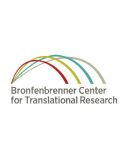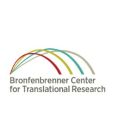Sleep
Researchers Develop a Test for Extreme Fatigue
A blood test for sleep deprivation could help prevent accidents.
Posted March 21, 2024 Reviewed by Gary Drevitch
Key points
- Sleep deprivation has serious health consequences.
- A research team is working on a blood test to detect sleep deprivation.
- The idea is to use the test similarly to the ways blood-alcohol testing is administered during traffic stops.

Over centuries, the human body has developed a natural rhythm that uses biological and environmental factors to determine when to sleep and eat. But continued advances in technology—starting with the light bulb, all the way to on-demand entertainment—allow people to ignore these natural rhythms. Circumstances such as caring for an infant, working a night shift, or staying out late at a party can also disrupt regular sleep patterns. Researchers refer to these disruptions as “social jet lag.”
The evidence clearly demonstrates that deviating from a regular sleep pattern is bad for our health, leading to problems such as poor sleep quality, reduced cognitive performance, unhealthy eating patterns, depression, and anxiety. Data also finds that “social jet lag” can lead to heart disease. And there is clear evidence that sleep deprivation is an acute danger, as well: About 20 percent of traffic accidents worldwide are linked to sleep deprivation. Studies have found that after 24 hours awake, cognitive and motor performance is reduced to levels similar to having twice the legal limit for blood alcohol.
A team of Australian sleep researchers is working to address this problem. They have recently developed a blood test that can accurately detect severe fatigue due to sleep deprivation.
The idea is to use the test similarly to how blood-alcohol testing is used during traffic stops and after car accidents. Being able to identify when someone is sleep-deprived opens the door for lawmakers to create rules and laws which could ultimately discourage people from driving when overly fatigued.
For their recent paper, the Australian researchers tracked the sleeping patterns of 40 young, healthy adults. After maintaining a normal sleep schedule for two weeks, the participants spent several nights in a sleep lab. The experimental group were kept awake for 40 hours straight, with snacks and activity monitoring every hour. The control group maintained a schedule of sleeping for 8 hours and waking for 16 hours.
Researchers collected blood samples at regular intervals throughout the study for all participants, immediately extracted the plasma from these samples, and used machine learning to analyze the data collected from plasma samples to help identify a biomarker. For participants who were sleep deprived in the laboratory, researchers took blood samples from when they were well-rested and then when they were sleep-deprived.
They were able to find a valuable biomarker for fatigue. That biomarker predicted sleep deprivation with a 99.2% accuracy when comparing plasma samples from when participants were well-rested and then when they were sleep-deprived. Without being able to compare a test sample from when someone is well rested — which would be the circumstances during a traffic stop — the biomarker was able to predict sleep deprivation with 89.1% accuracy.
In addition to discovering a screening tool for fatigue, this research provides new information about the biomechanics of sleep deprivation – information that can help researchers better understand what’s happening in the body during fatigue.
The researchers point out a major limitation to their study: There were only a small number of participants, and all were young, healthy adults. More research is needed to explore whether the biomarker is effective in more diverse populations and in less-controlled environments.
The take-home message: Sleep deprivation has serious health consequences; among them, it can affect cognitive and motor skills that can lead to accidents. Researchers are working on developing a blood test to identify sleep deprivation, a step that could be a deterrent for risky behaviors while fatigued.


